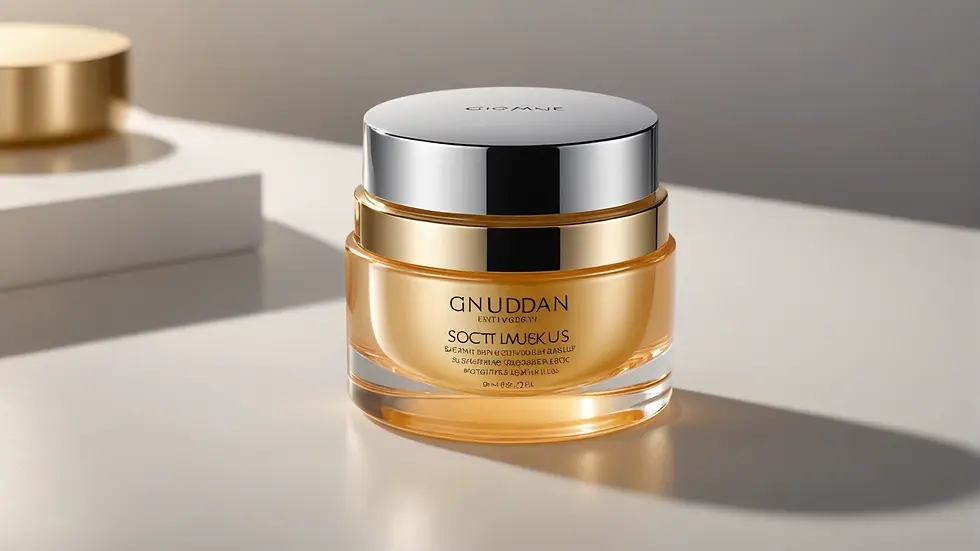
In the modern world, men's skincare is no longer a niche topic. The notion that skincare is only for women is a thing of the past. Today, men recognize that caring for their skin is vital not just for looking good but also for health. This guide offers practical tips that are easy to adopt and can lead to healthier skin.
Understanding Skin Types
Before selecting skincare products, it's important to identify your skin type. Knowing your skin type ensures you're using products that best meet its specific needs. There are four main skin categories:
Dry Skin: This type may feel flaky, tight, or rough. It requires rich, hydrating creams. For example, a nourishing cream containing hyaluronic acid can significantly improve moisture levels.
Oily Skin: Men with oily skin may encounter a shiny face and a higher likelihood of breakouts. Lightweight, oil-free moisturizers, like gel formulas, can help balance this oiliness. Research shows that using these products can reduce acne flare-ups by 60%.
Combination Skin: A mix of dry and oily areas, often with an oily T-zone. For this type, using different products for each area is beneficial. A lightweight serum can work well for the T-zone, while creamier products are suitable for drier patches.
Sensitive Skin: This skin type often reacts to products, leading to redness or irritation. Look for soothing, fragrance-free products. For instance, products with aloe vera or chamomile can help calm inflammation.
Identifying your skin type simplifies the overwhelming choice of products available, making it easier to find the right match.
Building Your Skincare Routine
A consistent skincare routine is crucial for maintaining healthy skin. Here are the essential steps, regardless of skin type.
Step 1: Cleansing
Cleansing removes dirt, oil, and impurities that accumulate throughout the day.
Tip: Pick a gentle cleanser suited to your skin type. For oily skin, consider a foaming cleanser. Those with dry skin should choose creamy options to prevent further drying.
Step 2: Exfoliating
Exfoliation helps shed dead skin cells, enhancing cell turnover. It smoothens the skin and reduces ingrown hairs.
Tip: Exfoliate 1-2 times weekly using a chemical exfoliant or scrub. Over-exfoliating can irritate the skin, so moderation is key.
Step 3: Moisturizing
Moisturizers lock in moisture and keep skin hydrated.
Tip: Select a moisturizer based on your skin type. Men with oily skin should opt for lightweight formulas, while those with dry skin should go for thicker creams.
Step 4: Sun Protection
Daily sun protection is vital to prevent skin damage.
Tip: Use a broad-spectrum sunscreen with at least SPF 30. A moisturizer that incorporates SPF can simplify your routine, ensuring you wear protection every day.
Incorporating Targeted Treatments
Once your basics are in place, consider adding targeted treatments for specific concerns.
Eye Creams
The delicate skin around the eyes can show aging signs first. Eye creams can address puffiness and dark circles.
Tip: Look for eye creams with caffeine and peptides. These ingredients can reduce puffiness and firm the skin.
Acne Treatments
If acne is an issue, targeted treatments can help. Benzoyl peroxide and salicylic acid are effective active ingredients.
Tip: Apply these only to breakout-prone areas to prevent excessive dryness on the entire face.
Anti-Aging Products

To combat aging, consider incorporating retinol into your routine. Retinol boosts collagen production, leading to smoother skin.
Tip: Start with a low concentration to minimize irritation and gradually increase use as your skin adjusts.
Lifestyle Factors Influencing Skincare
For skincare efforts to work, support them with a healthy lifestyle.
Diet
A diet rich in antioxidants, vitamins, and healthy fats significantly impacts skin health. Foods like broccoli, oranges, and salmon are particularly beneficial.
Tip: Drink plenty of water daily. Staying hydrated enhances skin elasticity and overall appearance.
Sleep
Quality sleep is essential for skin rejuvenation. Studies show that insufficient sleep can worsen skin conditions and lead to a tired appearance.
Tip: Aim for 7-9 hours of sleep per night to support skin recovery.
Stress Management
High stress levels can manifest as various skin issues. Finding effective strategies to cope is essential.
Tip: Engage in regular exercise, meditation, or hobbies to lower stress levels and improve skin condition.
Common Skincare Mistakes to Avoid
Avoid these common errors that can undermine your skincare regimen.
Over-washing
Cleansing too frequently can strip away natural oils, causing dryness.
Tip: Limit cleansing to twice a day—morning and night.
Skipping Sunscreen
Neglecting sunscreen can lead to long-term skin damage.
Tip: Make sunscreen application a daily habit to avoid sunspots and premature aging.
Impatience
Many men expect instant results from skincare products and often quit too early.
Tip: Allow 4-6 weeks to see real changes in your skin from new products.

Wrapping Up
Taking care of your skin doesn't have to be overwhelming. With an understanding of your skin type, a simple skincare routine, and healthy lifestyle habits, achieving healthier skin is attainable.
Integrate these tips into your daily routine, and remember that consistency is vital. Consulting a dermatologist can provide personalized advice tailored to your skin's unique needs.
Healthy skin boosts confidence and promotes a positive self-image. Commit to a skincare routine and enjoy the benefits that come with it.



Opmerkingen